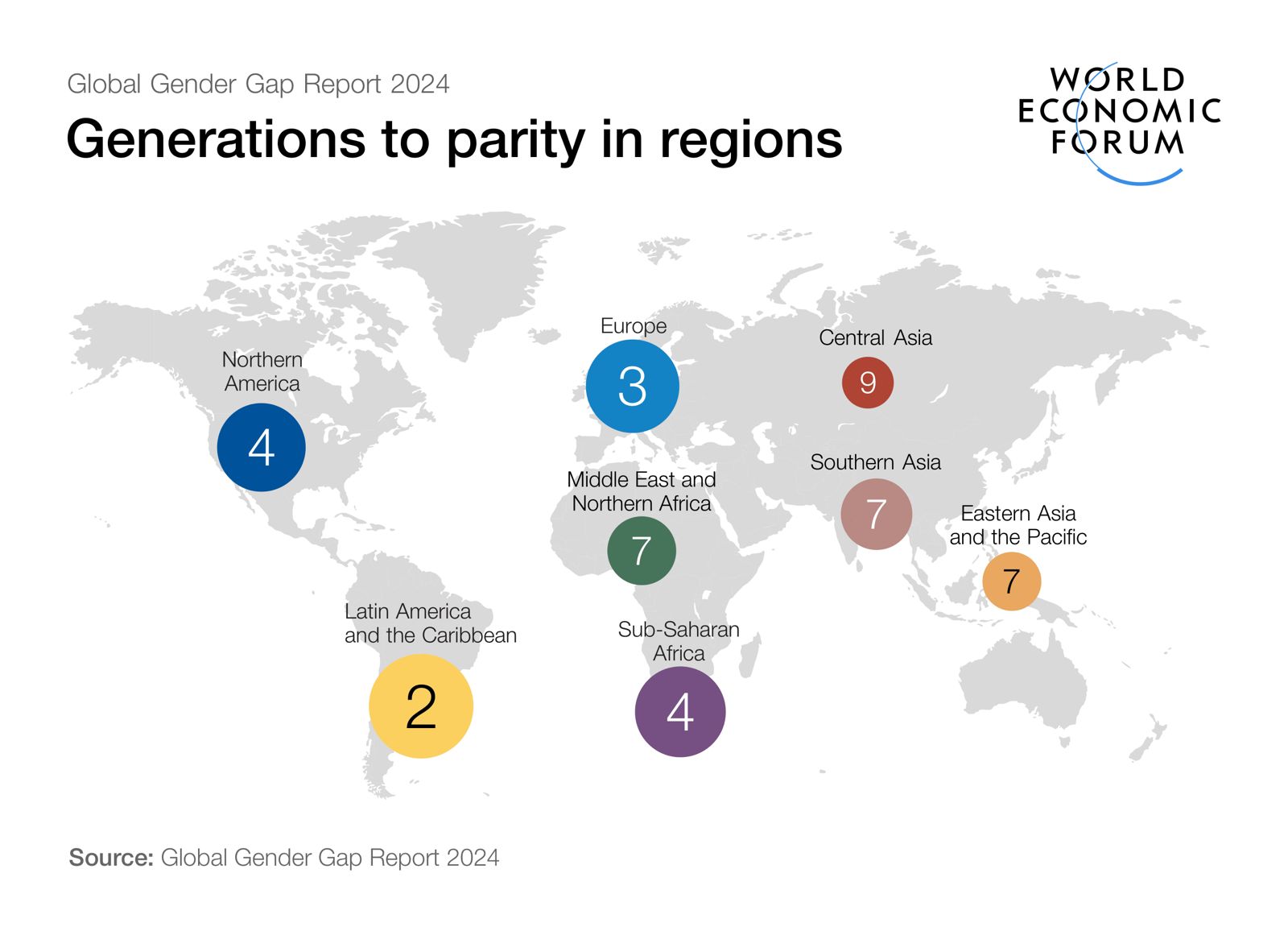Pakistan ranks 145th out of 146 countries in the Global Gender Gap Index 2024. This represents a decline from its 142nd position in 2023, highlighting growing challenges in achieving gender parity.
Amir Jahangir, Chief Executive Officer of Mishal Pakistan, the Country Partner Institute of the World Economic Forum said, “Pakistan’s performance in the Global Gender Gap Report 2024 is a stark reminder of the persistent gender disparities that hinder our nation’s progress. Despite some improvements in educational attainment, significant gaps remain in economic participation, political empowerment, and health.
He further said, “Pakistan’s performance in the Global Gender Gap Report 2024 highlights the urgent need for more effective and impactful gender empowerment initiatives. While efforts have been made, the overall impact on gender parity remains limited. To address these challenges, the government must prioritize comprehensive policies that promote women’s participation in the workforce, ensure equitable access to quality education at all levels, and enhance women’s representation in political and leadership roles. Strengthening institutional frameworks and fostering a culture of inclusivity are crucial steps towards achieving gender parity and unlocking the full potential of Pakistan’s human capital.”
“Global gender parity isn’t just an aspiration; it’s an imperative for sustainable development and social justice. We must collectively commit to empowering women and girls with equal opportunities and rights to build a more inclusive and prosperous future for all.” – Puruesh Chaudhary
The report underscores critical areas where Pakistan must focus its efforts to bridge the gender gap:
Economic Participation and Opportunity: Pakistan ranks 143rd in this subindex with a score of 0.360. The country faces significant gender disparities in labor-force participation (30.4%, ranked 140th), wage equality (ranked 81st), and representation in senior roles (6.1%). These indicators reflect the urgent need for policies and initiatives that promote women’s economic empowerment and leadership.
Educational Attainment: With a score of 0.836, Pakistan ranks 139th in this subindex. Despite slight improvements, notable gaps persist in literacy (67.1%, ranked 137th) and varying levels of educational enrollment. Primary (87.6%), secondary (84.3%), and tertiary education (92.6%) enrollment rates indicate progress, but the pace remains slower compared to other countries.
Health and Survival: Pakistan’s score remains stable at 0.961, ranking 132nd. The country shows parity in sex ratio at birth but lags in healthy life expectancy.
Political Empowerment: This subindex sees the most significant decline, with Pakistan ranking 112th and scoring 0.122. The representation of women in parliament (19.3%) and ministerial positions (6.3%) reflects substantial gender imbalances in political leadership.
Regional Context – South Asia
In South Asia, Pakistan ranks seventh with a gender parity score of 63.7%. The region has shown modest improvements since 2006, but challenges persist. South Asia ranks lowest in Economic Participation and Opportunity, with significant gender disparities in labor-force participation and leadership roles. Educational Attainment scores 94.5%, indicating progress but with gaps in literacy and education, particularly in Pakistan and Nepal. Health and Survival remains stable at 95.4%, while Political Empowerment sees a slight decline to 26%, reflecting gender imbalances in ministerial and parliamentary representation across the region.
Saadia Zahidi, Managing Director, World Economic Forum on the launch of the report said, “Gender parity is fundamental to whether and how economies and societies thrive. The Global Gender Gap Report 2024 highlights the urgent need for action to close gender gaps and ensure equal opportunities for all. Pakistan’s performance underscores the critical need for comprehensive strategies to address gender disparities and promote inclusive growth.”
Global Overview
In 2024, the global gender gap score across 146 countries is 68.5%. Compared to last year, the gap has narrowed slightly by +0.1 percentage points to 68.6% for both the full sample and the 101 countries tracked since 2006. Progress has slowed, indicating it will take 134 years to achieve full gender parity, far beyond the 2030 Sustainable Development Goal target. Iceland leads the index with 93.5% closure, while European economies dominate the top 10, including Finland, Norway, and Sweden. Health and Survival and Educational Attainment gaps are nearly closed, while Economic Participation and Opportunity and Political Empowerment remain more challenging, with significant regional variations.
The Global Gender Gap Report 2024 calls for concerted efforts by governments, businesses, and civil society to accelerate progress towards gender equality. In Pakistan, addressing the gender gap requires targeted policies that promote women’s economic participation, enhance educational opportunities, improve healthcare access, and increase political representation.
The World Economic Forum, committed to improving the state of the world, is the International Organization for Public-Private Cooperation. The Forum engages the foremost political, business, cultural, and other leaders of society to shape global, regional, and industry agendas.

